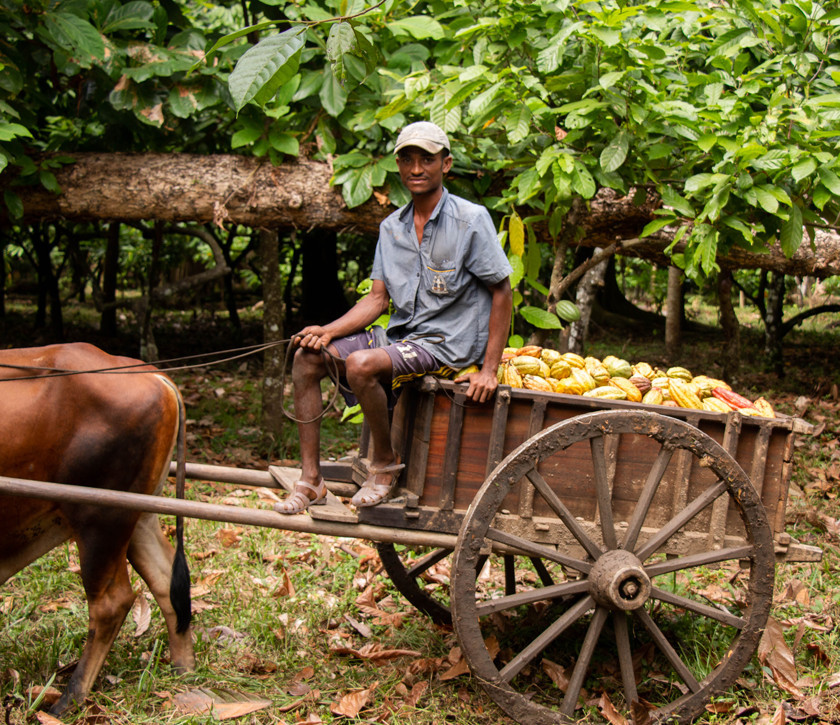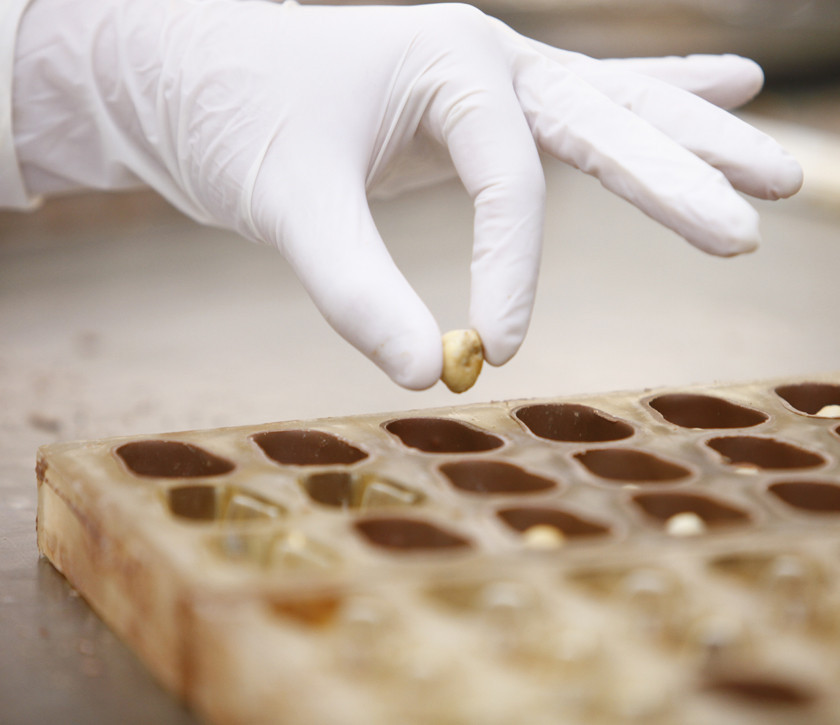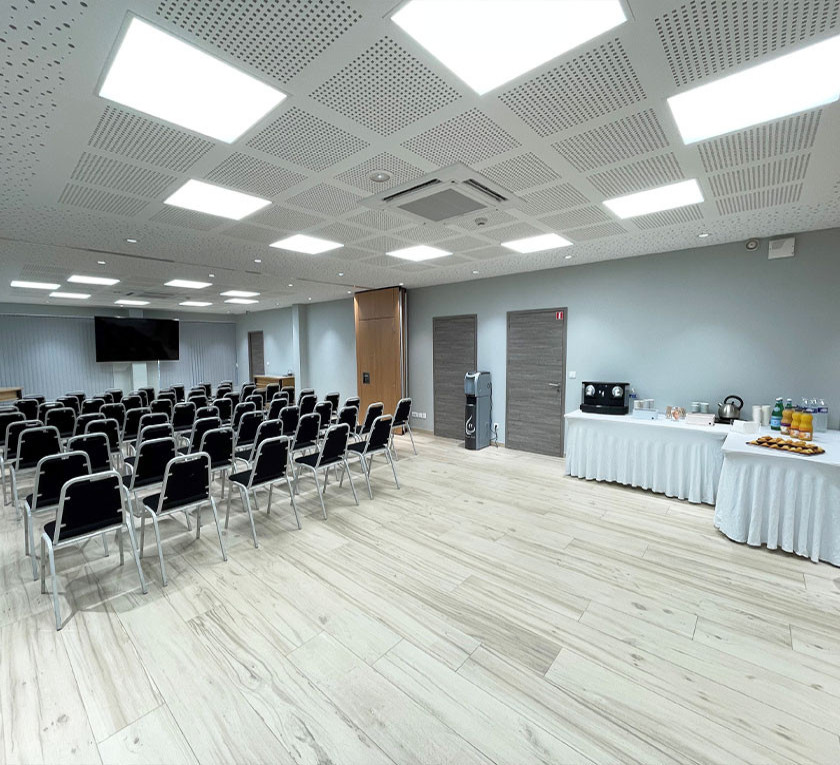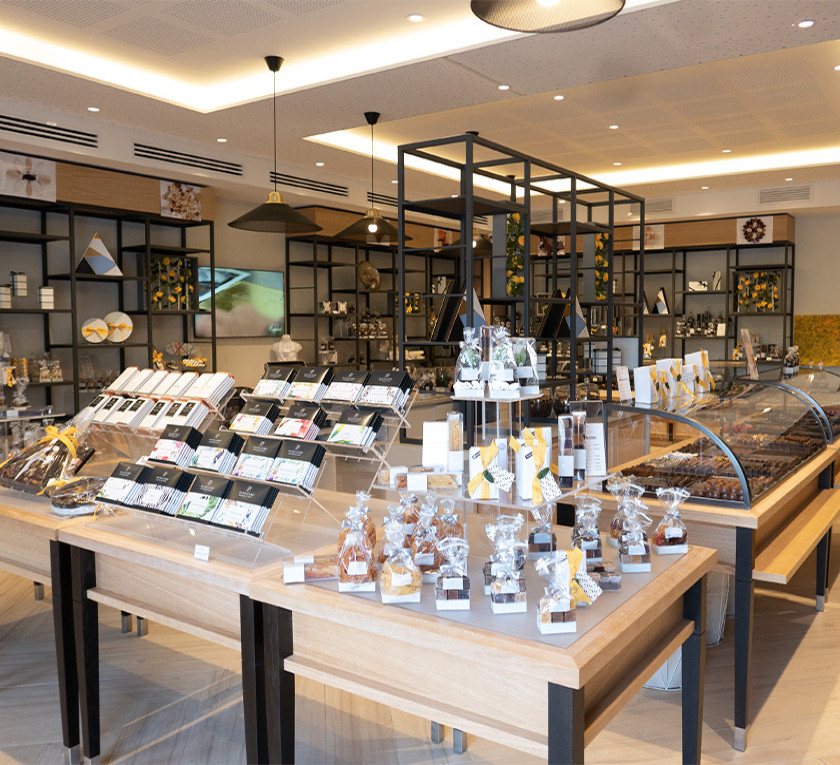Puyricard and Ecoresponsability
We have integrated a responsible environmental approach into our manufacturing processes. The cost of raw materials and our desire to offer fresh products has always been part of our DNA and the importance of avoiding waste. Our company is located in an energy-saving tree-lined park, "La Plantation", where we have been recycling waste water and sorting waste for a very long time. In 2020, the Chocolaterie hosted a dozen beehives in this park thanks to the Association de “Défense de l'Abeille en Provence” (A.D.A.P.). They will be able to forage there in complete tranquillity for the morello cherry trees planted at the time of the installation of the manufacturing workshops in this little corner of paradise by Marie-Anne and Jan Guy Roelandts, founders of the Chocolaterie.


Cocoa, ethics, fair trade and sustainable development
The Chocolaterie de Puyricard has always favoured sustainable economic relations, particularly with cocoa bean producing countries. In particular, it has supported most of its suppliers for decades, who are largely family businesses and craftsmen. Every year, Tanguy Roelandts goes out to meet producers to better understand their problems. Convinced of the "ethical" importance of guaranteeing good working and living conditions to the producers, and of the impact on the quality of the beans of accompanying the farmers, Tanguy has committed the Chocolaterie to an ambitious programme: The club of committed chocolate makers.
Initiated in 2017 by the “Confédération des Chocolatiers Confiseurs de France”, this club aims to bring together producers, professionals and customers around the same approach and the same commitment. It is a real long-term partnership that combines fair trade and sustainable development, to enhance the value of Cameroonian cocoa and make it a product of excellence for artisan chocolate makers and their customers.
Equality between men and women in the chocolate factory
Since March 1, 2024, La Chocolaterie de Puyricard has published its Group Index (the result of 4 mandatory indicators, 3 of which are at the maximum and 1 of which is not calculated), as part of the law "For the freedom to choose one's professional future"), which confirms its commitment to this equality.
















